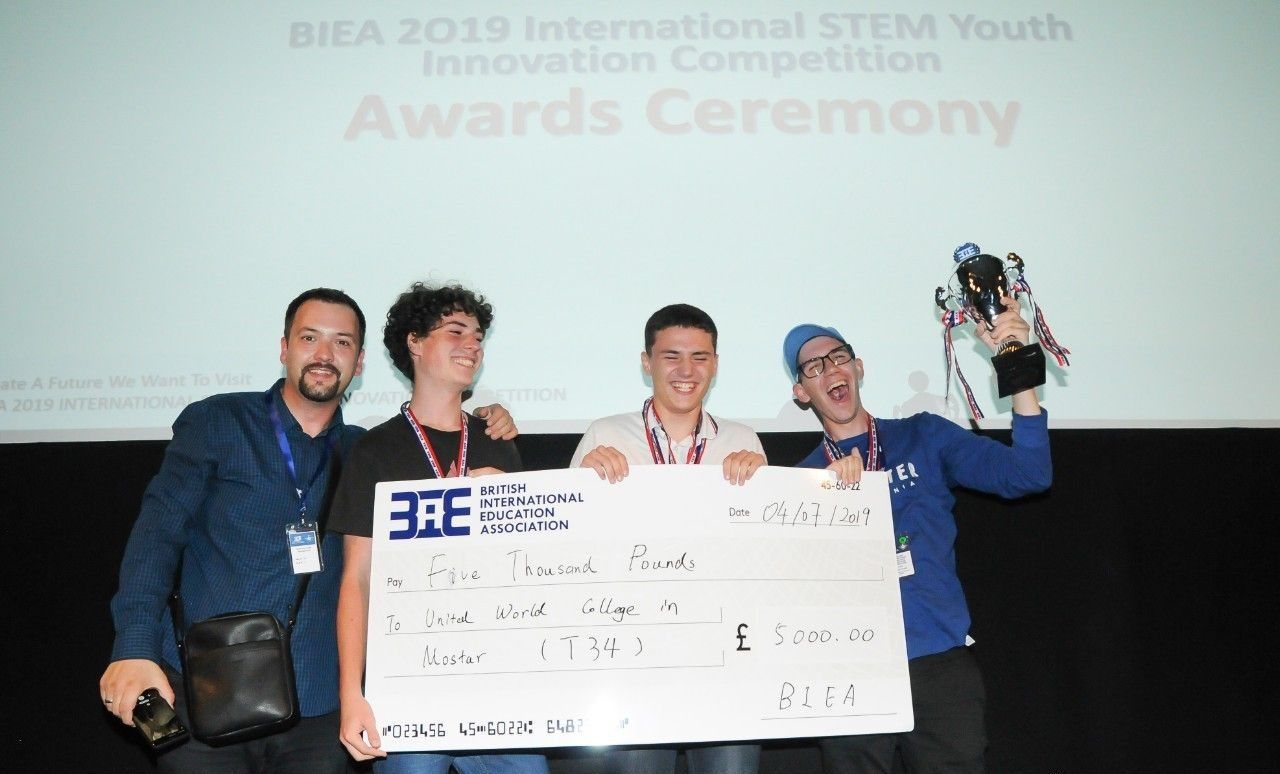On the 4th of July, the six-month long BIEA 2019 International STEM Youth Innovation Competition, held at the London Royal Air Force Museum, came to a close. The intense competition included display demonstration, evaluation and flying. The winners of the grand prize and the champion of the 15-17-year age group were the UWCIM team from Bosnia and Herzegovina.
Members of the UWCIM team explained that due to Bosnia and Herzegovina’s previous conflicts, the country is neither developed or rich in educational resources, however, this failed to affect the children’s curiosity and pursuit of knowledge in science and innovation. The UWCIM team comes from the United World College in Mostar, that like other UWC schools around the world, aims to promote world peace and sustainable development by uniting different countries, people and culture through education. The students of the champion team UWCIM are technological innovation enthusiasts, who not only focus of pursuing STEM subjects, but also word hard to find ways to put their creative ideas into practice.
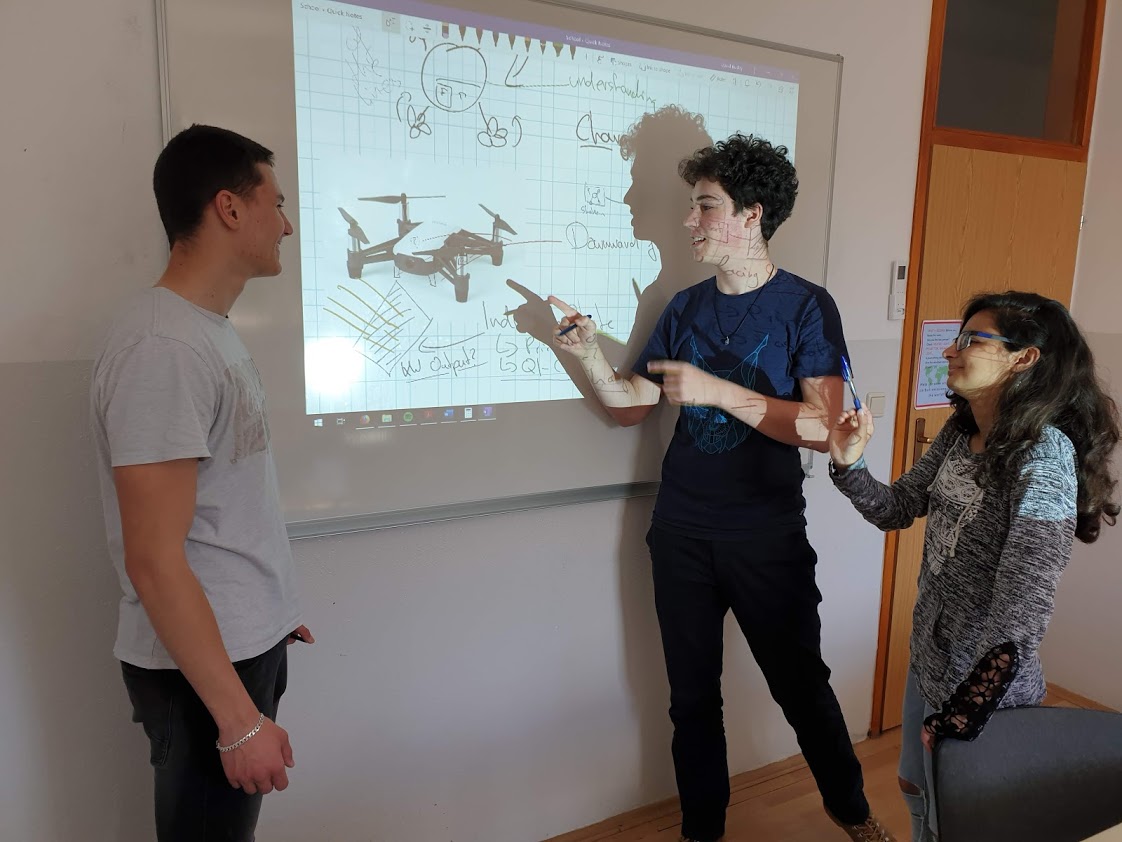
Team members from UWCIM exchanging ideas in the preliminary session of the competition
The STEM education in schools’ help develop students’ passion for science and innovation, and the traumatizing history of Bosnia and Herzegovina has further helped develop this devout respect nature and life. While most of the teams focused their “fighting extinction via drone technology” project on counter-hunting, the UWCIM team added a novel focus on how to solve the problem of Egyptian vultures that feed on animal carcasses, as this poses a threat to ecosystems as well as spreading diseases. In the report and video presentations, the team not only showed a solid technical ability, but also outlined how they would use drones to solve this big issue. In particular, the group explained how the war in Bosnia and Herzegonia had left 80,000 bombs in the mountains that in turn threatening the Egyptian vultures home. It poses great challenges to experts and scholars who protect and study them, and it was easy to see that the UWCIM team truly understands the essence of science and innovation as well as the spirit of humanism.
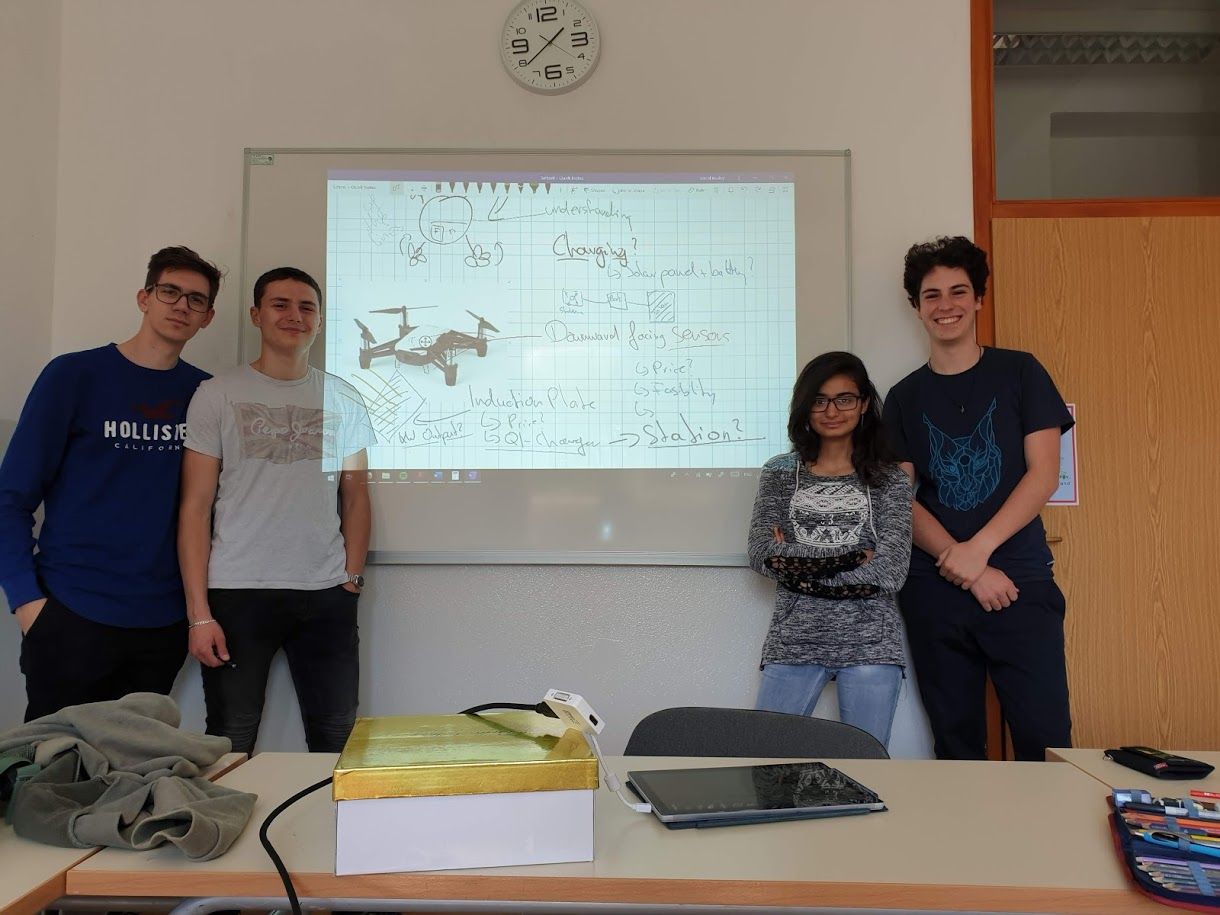
Team members from the UWCIM team
Despite their captivating performance in the preliminary round, their hardest challenge was yet to come. Because the school had limited funds, it was next to impossible to provide financial help to the UWCIM team in order to participate in the London finals. The cost of the trip to London soon became their biggest problem. The team began writing letters to the school outlining their hard work through reports and videos. Eventually they contacted the sponsors of the school and finally the problem of boarding and lodging in the UK was solved and the school decided to provide transportation subsidy to the team. Unfortunately, this wasn’t the team’s final hurdle. The visa application of the team member Israa Draz was rejected, and the visas of the other three members were delayed. Two weeks before departure, just when everyone thought they would miss the final, two members received their visa. The team was overjoyed and the two students carried the team’s enthusiasm to London.
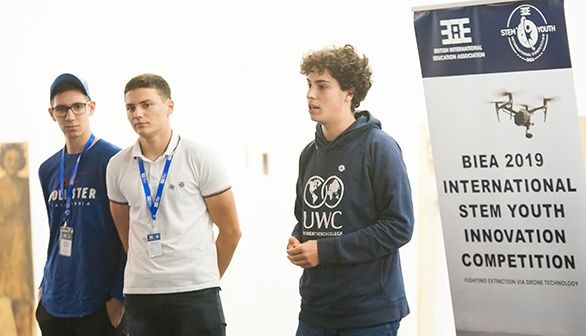
UWCIM team in the evaluation session on the final day
The UWCIM team was just one of the 28 finalists at the Royal Air Force Museum. The team responded well in all aspects of the competition. Under the precise command of pilot Aris Karamustafic, alongside two members of David Christian Busley, David successfully captured 11 valuable animal photos using superb flying skills, achieving zero collision, zero runaway and not to mention a safe landing. In the end, the UWCIM won the championship of the 15-17 age group and won the crown of the highest award in the competition, thus winning the overall prize of 5,000 pounds in one fell swoop!
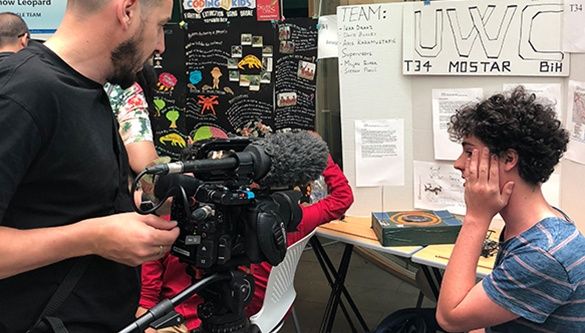
UWCIM team in the technological achievement showcase prior to the final
Team member Aris Karamustafic had a brief conversation with BIEA STEM Chairman David Hanson after the awards ceremony. He excitedly said to David: “I am from a small country, you may not be able to imagine, before coming to London, I have never been to the plane, have not been to a cruise ship, or even seen the subway. I have never expected to win the game with my teammates, because it is not easy for us to compete with other teams. The fact is that we won the championship. This feeling is really amazing and wonderful! Thank you very much for the BIEA STEM Competition. Thank you for giving us such great encouragement and courage. It is BIEA that makes us believe that science and education have no national boundaries. Today is definitely the best day of my life!”
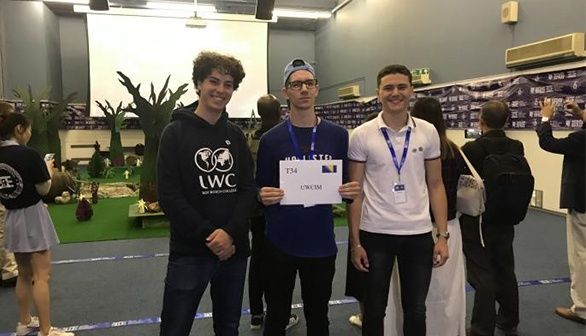
UWCIM team in the flying session
David also told the media after the competition that this year’s BIEA International STEM Youth Innovation Competition was not only a creative transformation competition for drones to save endangered animals, but also a brilliant showcase of the students’ performance in the field of science and technology. BIEA appreciates the sheer enthusiasm of the students in these projects, and is eager to push the competition to an even further international level. BIEA not only promotes the exchange of international science and education, but also provides students with a chance to realise their dreams!
Let us cheer for this champion team, and for this unique international youth science and technology event, and look forward to next year’s competition!

